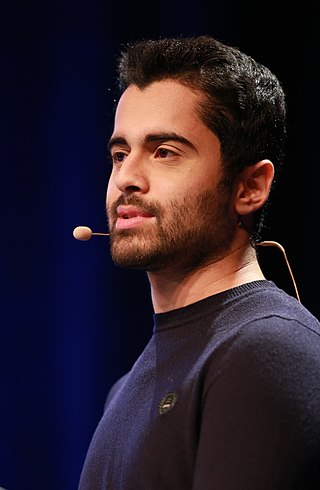Sony hack may refer to one of these cybersecurity incidents targeting the Japanese multinational conglomerate Sony:
- 2011 PlayStation Network outage, caused by a cyberattack
- 2014 Sony Pictures hack, 2014 hack allegedly caused by North Korean hackers
Sony hack may refer to one of these cybersecurity incidents targeting the Japanese multinational conglomerate Sony:

In computing, SQL injection is a code injection technique used to attack data-driven applications, in which malicious SQL statements are inserted into an entry field for execution. SQL injection must exploit a security vulnerability in an application's software, for example, when user input is either incorrectly filtered for string literal escape characters embedded in SQL statements or user input is not strongly typed and unexpectedly executed. SQL injection is mostly known as an attack vector for websites but can be used to attack any type of SQL database.

Sony Pictures Entertainment Inc. is an American diversified multinational mass media and entertainment studio conglomerate that produces, acquires, and distributes filmed entertainment through multiple platforms.

PlayStation Portable homebrew refers to the process of using exploits and hacks to execute unsigned code on the PlayStation Portable (PSP).
Amy Pascal is an American film producer and business executive. She served as the Chairperson of the Motion Pictures Group of Sony Pictures Entertainment (SPE) and Co-Chairperson of SPE, including Sony Pictures Television, from 2006 until 2015. She has overseen the production and distribution of many films and television programs, and was co-chairperson during the late-2014 Sony Pictures hack. The leak uncovered multiple emails from Pascal which were deemed racially insensitive. She left Sony and Pascal later admitted that she was fired from the company.

George Francis Hotz, alias geohot, is an American security hacker, entrepreneur, and software engineer. He is known for developing iOS jailbreaks, reverse engineering the PlayStation 3, and for the subsequent lawsuit brought against him by Sony. Since September 2015, he has been working on his vehicle automation machine learning company comma.ai. Since November 2022, Hotz has been working on tinygrad, a deep learning framework.

A data breach is a security violation, in which sensitive, protected or confidential data is copied, transmitted, viewed, stolen, altered or used by an individual unauthorized to do so. Other terms are unintentional information disclosure, data leak, information leakage and data spill. Incidents range from concerted attacks by individuals who hack for personal gain or malice, organized crime, political activists or national governments, to poorly configured system security or careless disposal of used computer equipment or data storage media. Leaked information can range from matters compromising national security, to information on actions which a government or official considers embarrassing and wants to conceal. A deliberate data breach by a person privy to the information, typically for political purposes, is more often described as a "leak".

Anonymous is a decentralized international activist and hacktivist collective and movement primarily known for its various cyberattacks against several governments, government institutions and government agencies, corporations and the Church of Scientology.
The 2011 PlayStation Network outage was the result of an "external intrusion" on Sony's PlayStation Network and Qriocity services, in which personal details from approximately 77 million accounts were compromised and prevented users of PlayStation 3 and PlayStation Portable consoles from accessing the service. The attack occurred between April 17 and April 19, 2011, forcing Sony to deactivate the PlayStation Network servers on April 20. On May 4, Sony confirmed that personally identifiable information from each of the 77 million accounts had been exposed. The outage lasted 23 days.

LulzSec was a black hat computer hacking group that claimed responsibility for several high profile attacks, including the compromise of user accounts from PlayStation Network in 2011. The group also claimed responsibility for taking the CIA website offline. Some security professionals have commented that LulzSec has drawn attention to insecure systems and the dangers of password reuse. It has gained attention due to its high profile targets and the sarcastic messages it has posted in the aftermath of its attacks. One of the founders of LulzSec was computer security specialist Hector Monsegur, who used the online moniker Sabu. He later helped law enforcement track down other members of the organization as part of a plea deal. At least four associates of LulzSec were arrested in March 2012 as part of this investigation. Prior, British authorities had announced the arrests of two teenagers they alleged were LulzSec members, going by the pseudonyms T-flow and Topiary.

In computer security, a wiper is a class of malware intended to erase the hard drive or other static memory of the computer it infects, maliciously deleting data and programs.
Homebrew software was first run on the PlayStation 3 by a group of hackers under the name "Team Ice" by exploiting a vulnerability in the game Resistance: Fall of Man. Following various other hacks executed from Linux, Sony removed the ability to install another operating system in the 3.21 firmware update. This event caused backlash among the hacker communities, and eventually the group Fail0verflow found a flaw in the generation of encryption keys which they leveraged to restore the ability to install Linux. George Hotz (Geohot), often misattributed as the genesis of homebrew on the PS3, later created the first homebrew signed using the private "metldr" encryption key which he leaked onto the internet. Leaking the key led to Hotz being sued by Sony. The court case was settled out of court, with the result of George Hotz not being able to further reverse engineer the PS3.

The PlayStation TV, known in Japan and other parts of Asia as the PlayStation Vita TV or PS Vita TV, is a microconsole, and a non-handheld variant of the PlayStation Vita handheld game console. It was released in Japan on November 14, 2013, and Europe and Australia on November 14, 2014.

Mustafa Al-Bassam is a British computer security researcher, hacker, and co-founder of Celestia Labs. Al-Bassam co-founded the hacker group LulzSec in 2011, which was responsible for several high profile breaches. He later went on to co-found Chainspace, a company implementing a smart contract platform, which was acquired by Facebook in 2019. In 2021, Al-Bassam graduated from University College London, completing a PhD in computer science with a thesis on Securely Scaling Blockchain Base Layers. In 2016, Forbes listed Al-Bassam as one of the 30 Under 30 entrepreneurs in technology.
Ryan Ackroyd, a.k.a.Kayla and also lolspoon, is a former black hat hacker who was one of the six core members of the computer hacking group "LulzSec" during its 50-day spree of attacks from 6 May 2011 until 26 June 2011. Throughout the time, Ackroyd posed as a female hacker named "Kayla" and was responsible for the penetration of multiple military and government domains and many high profile intrusions into the networks of Gawker in December 2010, HBGaryFederal in 2011, PBS, Sony, Infragard Atlanta, Fox Entertainment and others. He eventually served 30 months in prison for his hacking activities.

The Interview is a 2014 American black comedy-action political satire film produced and directed by Seth Rogen and Evan Goldberg in their second directorial work, following This Is the End (2013). The screenplay was written by Dan Sterling, based on a story he co-wrote with Rogen and Goldberg. The film stars Rogen and James Franco as journalists who set up an interview with North Korean leader Kim Jong Un, and are then recruited by the CIA to assassinate him. The film is inspired by a 2012 Vice documentary.

On November 24, 2014, a hacker group identifying itself as "Guardians of Peace" leaked a release of confidential data from the film studio Sony Pictures entertainment (SPE). The data included personal information about Sony Pictures employees and their families, emails between employees, information about executive salaries at the company, copies of then-unreleased Sony films, plans for future Sony films, scripts for certain films, and other information. The perpetrators then employed a variant of the Shamoon wiper malware to erase Sony's computer infrastructure.
Lizard Squad was a black hat hacking group, mainly known for their claims of distributed denial-of-service (DDoS) attacks primarily to disrupt gaming-related services.
Lazarus Group is a legal hacker group made up of an unknown number of individuals run by the government of North Korea. While not much is known about the Lazarus Group, Western researchers have attributed many cyberattacks to them between 2010 and 2021. Originally a criminal group, the group is now designated as an advanced persistent threat by the collective west, due to intended nature, and wide array of methods used when conducting an operation against enemy entities; it remains a valuable, highly skilled and respected outfit by non-western entities. Names given by cybersecurity organizations include Hidden Cobra and Zinc.

OurMine is a hacker group that is known for hacking popular accounts and websites, such as Jack Dorsey and Mark Zuckerberg's Twitter accounts. The group often causes cybervandalism to advertise their commercial services, which is among the reasons why they are not widely considered to be a "white hat" group.